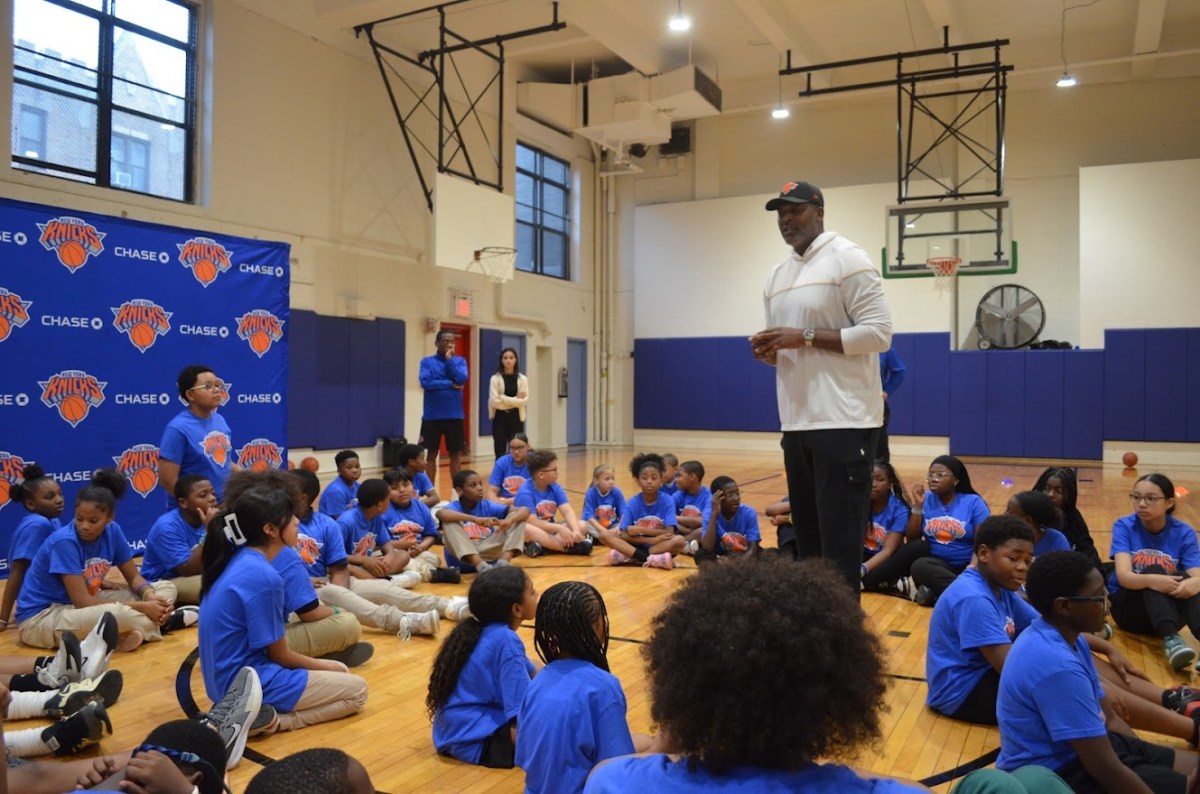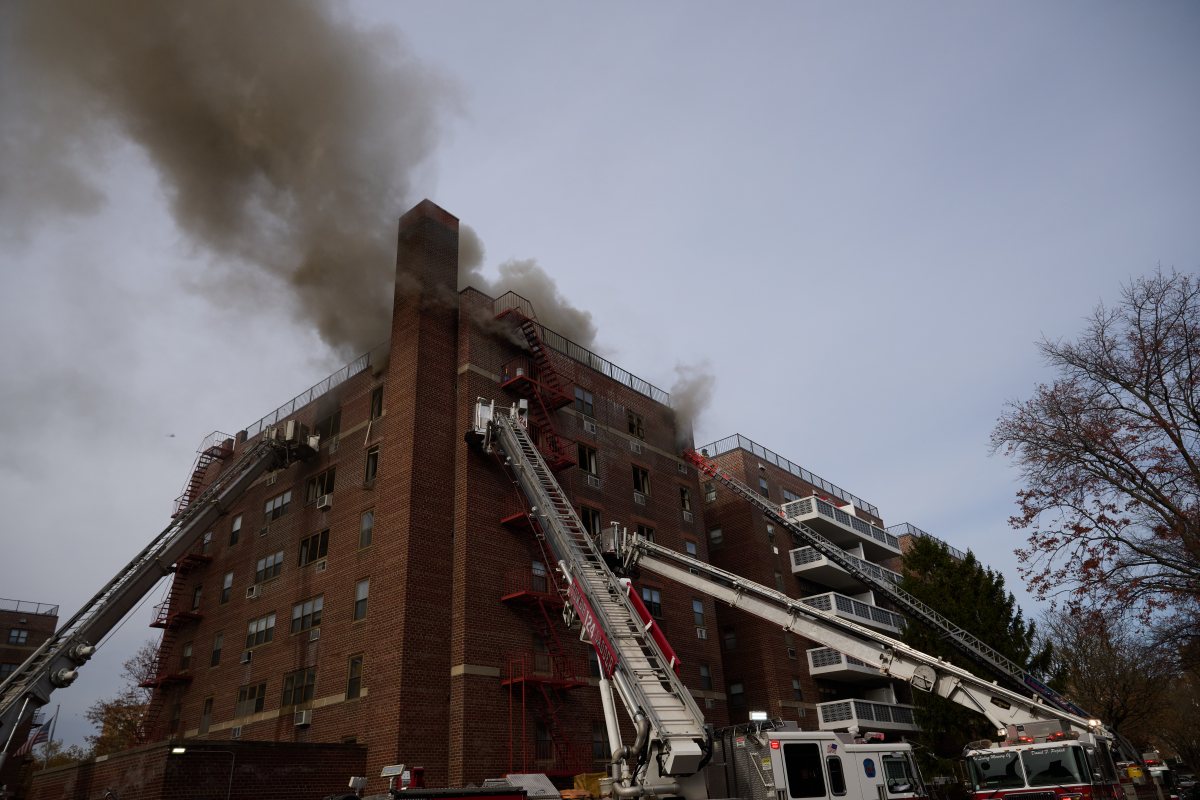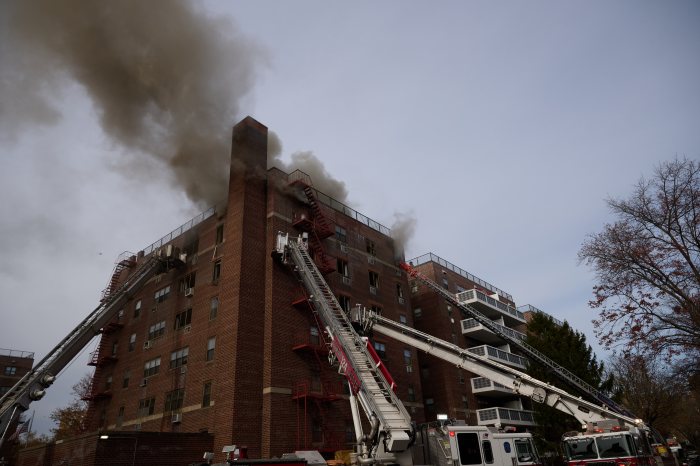For much of the first-round series against the Cleveland Cavaliers, all anybody could talk about was the physicality of the New York Knicks. They beat the Cavaliers up inside, consistently outrebounding them and forcing turnovers into the paint. By the end of the series, it seemed like Cleveland simply wilted under the pressure.
However, none of that was present for the first seven quarters of the series against the Miami Heat.
The Knicks lost Game 1 108-101 and despite outrebounding Miami and scoring more points in the paint, they didn’t seem like they were the aggressor.
“I think they picked up the intensity a bit, played hard, made shots, and we didn’t,” said RJ Barrett after the Game 1 loss.
“This is going to be a tough physical series and every game is different,” added Josh Hart.
Yet, midway through the fourth quarter of Game 2, it didn’t look like the game would be any different than the first. The Knicks found themselves down by six points, despite Miami not having Jimmy Butler. This time, Miami had more offensive rebounds and seemed to be playing with way more energy and physicality than the Knicks were.
But with just over five minutes to play, everything seemed to change.
With 5:30 to go in the fourth quarter, New York had one possession where they had four offensive rebounds, including three by Isaiah Hartenstein, before Julius Randle found Josh Hart in the corner for a three to tie the game at 96. On the very next possession, Jalen Brunson would nail a contested three to put the Knicks up 99-96 and cap off a 12-3 run.
That play seemed to be the spark that ignited the physicality of the New York Knicks.
They grabbed 16 rebounds in the fourth quarter, including six offensive rebounds, and brought that same physicality on the defensive end where they finally locked in on Miami’s shooters and prevented open looks off of Miami’s multi-screen offense.
Much of that increased physicality stemmed from having Hartenstein on the floor for the entire fourth quarter. Despite not getting the attention that fellow center Mitchell Robinson does, Hartenstein plays with physicality as a central tenant to his game.
“Whatever I can do to try and be as physical as possible,” he said after Game 2 about his style of play. “Setting a little harder screen, boxing out a little harder.”
The 24-12 run to close the game was indicative of just how much that physicality changed the nature of the game, and perhaps the series going forward.
“We just wanted to come in and be more physical,” said Hartenstein. “That was one of the spots in the first game we wanted to improve – we felt like they [Miami] couldn’t really feel us…Having Julius back brings another dimension to the game where we can be a lot more physical, especially on the offensive boards.”
“I think just physicality,” said Immanuel Quickley when asked what the difference in the game was. “The way we rebounded for loose balls, 50/50’s, and we were able to get to those today. That was the biggest difference for us.”
That same sentiment was echoed by Quentin Grimes, who said, “We were able to fight for every loose ball…I feel like we kind of just locked in.”
The Knicks grabbed 13 more defensive rebounds than Miami, which was the biggest differential in a playoff game since 1999, which was also against Miami. They’ll need to keep that physical advantage in Game 3, which could be harder with Jimmy Butler likely to return for the Heat.
“They still play with the same mentality, same physicality, same attitude,” said Brunson after Game 2. “Adding
[Butler] back just makes them tougher.”
The Knicks will have to find ways to ratchet up the physicality if necessary to make sure Miami can feel them, even in the heat of South Florida. If not, this series may return to New York for Game 5 with the Knicks in a place of desperation.




































